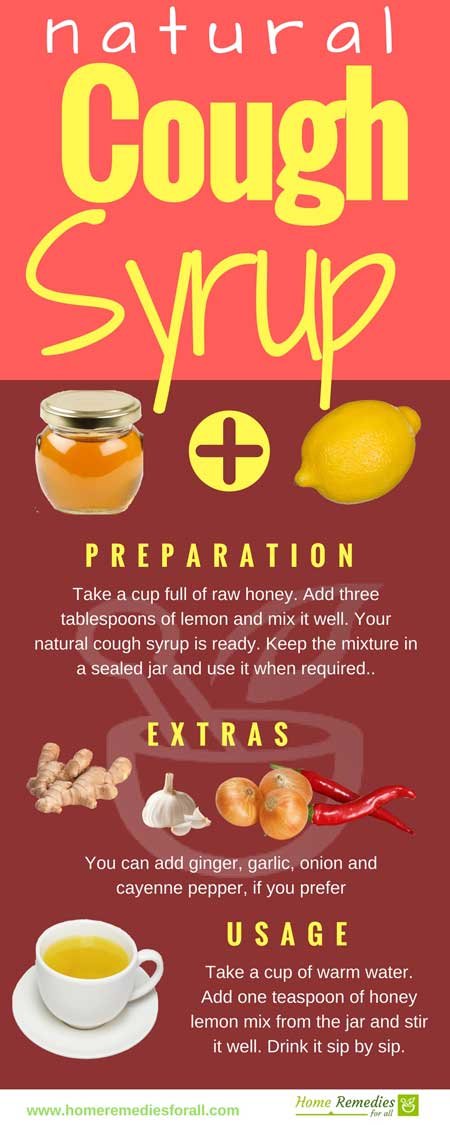Certain times of the year are viral infection times. You catch cold during these periods and the associated cough continues to linger on for a longer period even after the infection is gone. Doctors usually prescribe cough syrups to combat cough.
If you know that you can then perhaps you will not go for the chemical cough syrups available over the counter(OTC).
The viral cough and cold usually take 2 weeks to resolve. The usefulness of medicines and cough syrups have been challenged by researchers as there is no conclusive evidence that these medical options really work.
Yes, they do appear to provide symptomatic relief. Antihistamines, cough suppressants and decongestants certainly relieve you from the pain and discomfort. So, why should you use these expensive OTC products when you can make effective natural cough syrups at home?
But, before we look at the natural cough syrup recipe, let us look at the causes of cough to enable you to understand the mechanism of cough formation in the body. This will also help you to understand why the natural methods are more effective.
How Cough Is Formed in Chest and Throat?
There is perhaps no one in this world who never had a cough. The reason is simple. The world is full of irritants such as smoke, chemical fumes or any viral or bacterial infections that can enter your body through the respiratory system. Even excess water drinking or a food particle can cause obstructions. Cough is a natural reflex to repeal these external irritants.
Even internal irritants such as acid reflux and other medical conditions can also cause cough.
We will not go into the complicated details of how air is restricted and then expelled to form coughing action within fraction of a second of the irritants entering the respiratory system, but look into how the pain and discomfort can be reduced by natural cough syrup.
Cough can be dry or wet depending on what is causing it. Wet coughs are usually treated by cough syrups. Wet cough is also called productive cough.
One should never try to suppress the mucus, because mucus formation is natural reflex to the irritants and the irritants are expelled out as you expelled the mucus. It should get out of your body. Unremoved mucus can get into lungs and cause bronchitis and pneumonia.
The objective of the syrup is to clear the phlegm or mucus that is obstructive with ease and reduce pain and discomfort.
Make Natural Cough Syrup with Honey and Lemon

This natural cough syrup will be useful in both dry and productive cough. It will soothe the itch and irritation if you have dry cough, and it will dislodge the mucus and expel it if you have a productive cough.
You will need honey and lemon. You can add ginger, garlic, onion and cayenne pepper, if you prefer, but here we will just make the basic honey lemon natural cough syrup that is being used for ages to combat cough.
You can make it and keep it for later use. This is useful at the time of weather changes. Someone or the other is likely to get impacted by the common cold in the house, particularly if anyone in your family has a history of catching cold every year during winter.
Take a cup full of raw honey. Add three tablespoons of lemon and mix it well. Your natural cough syrup is ready. Keep the mixture in a sealed jar and use it when required.
Take a cup of warm water, add one teaspoon of the honey lemon mix. Stir it well and drink it warm slowly.
Second method is to prepare it instantly.
Take one cup of warm water. Add ½ teaspoon of lemon juice and one teaspoon of honey. Stir and mix it well. Drink it warm.
Do it 3 times daily until your cough is completely gone.
Honey is an antibacterial and soothing agent. It helps dislodging the mucus from the respiratory tract. This helps in reducing discomfort as well as pain relief. If you have a dry cough then honey soothes your throat.
Lemon is rich in vitamin C. It increases your Immunity and ability to fight with infections as it is antibacterial and antimicrobial also.
If your cough doesn't subside within two weeks with this natural cough syrup, then you must contact your doctor. Your cough may not be due to a common cold and can be a sign of other underlying conditions.

